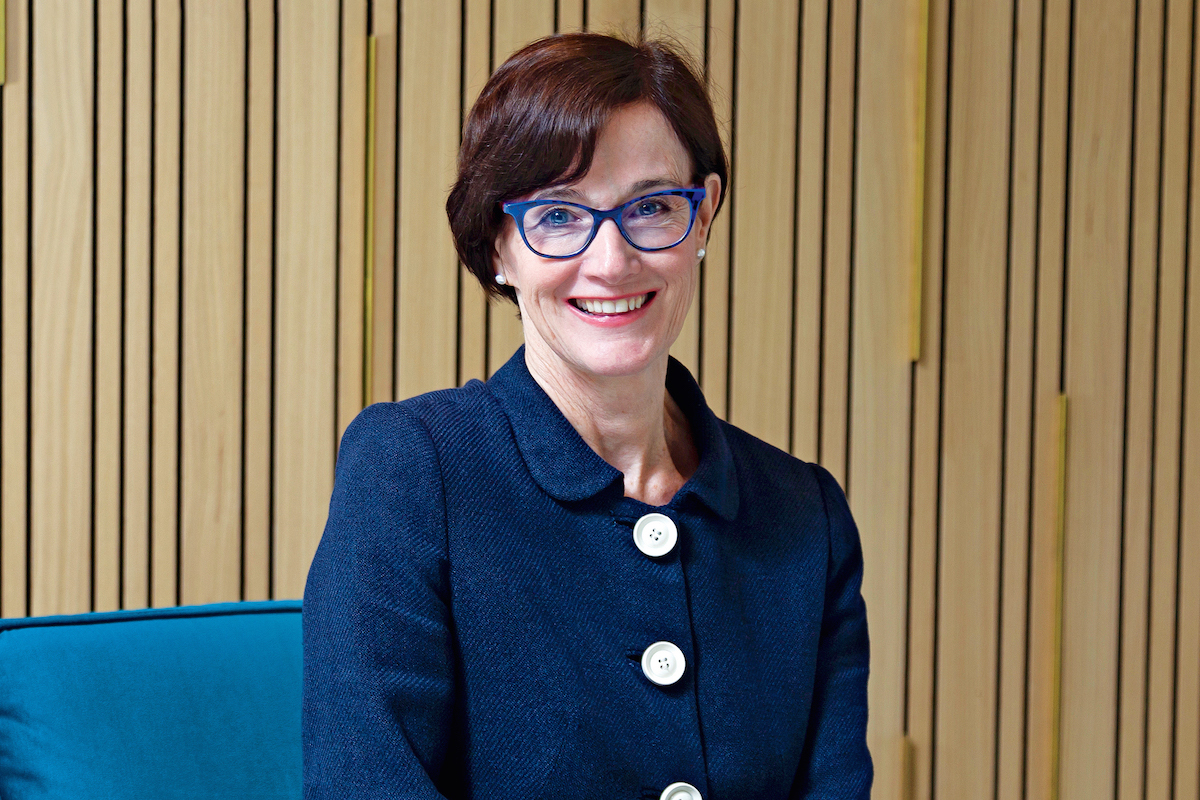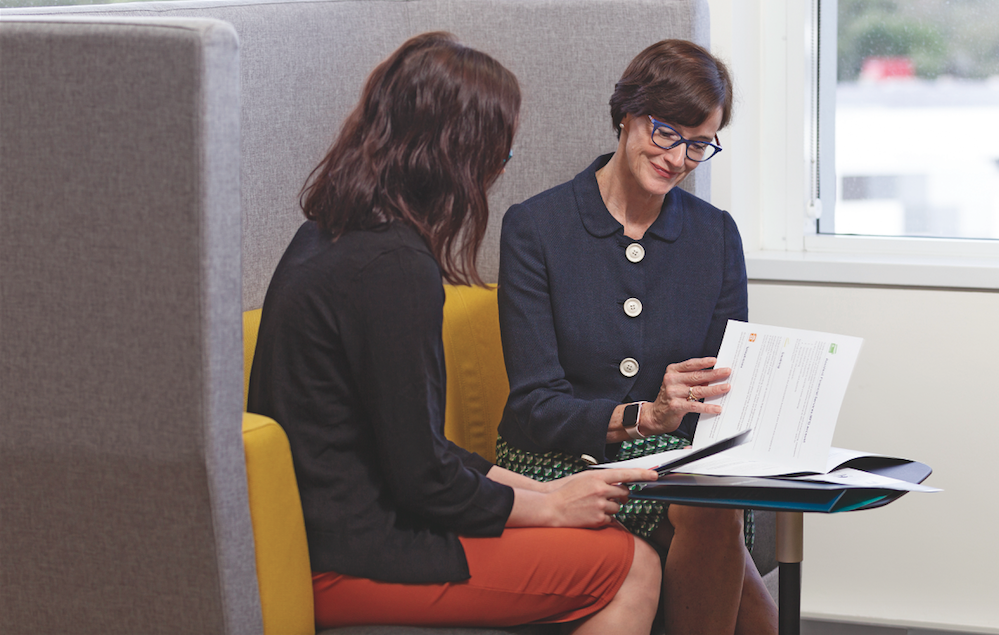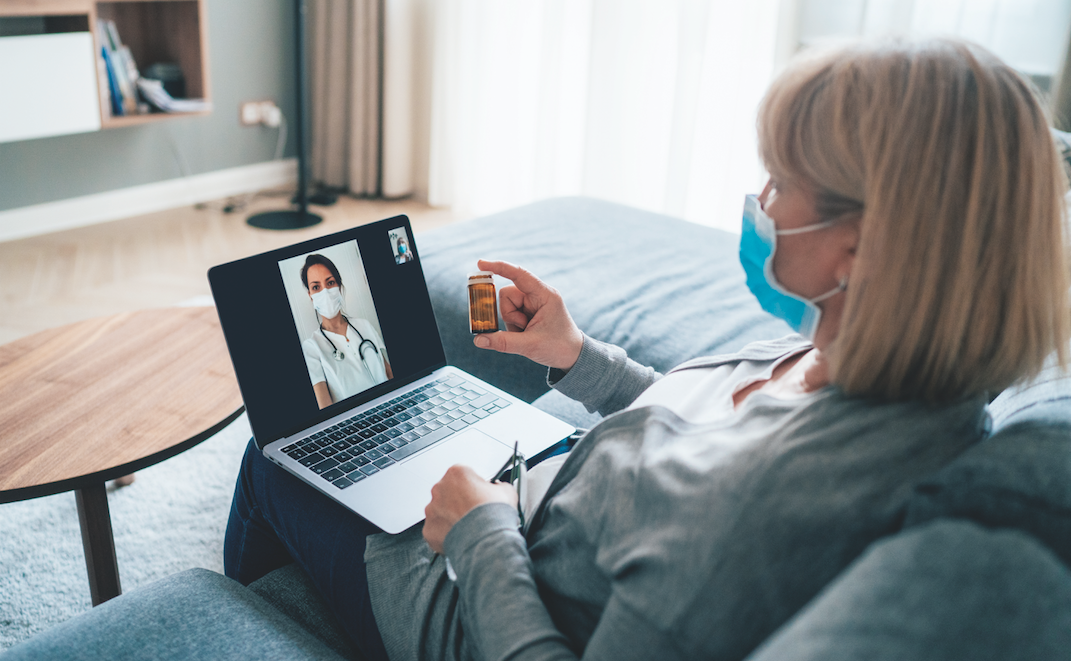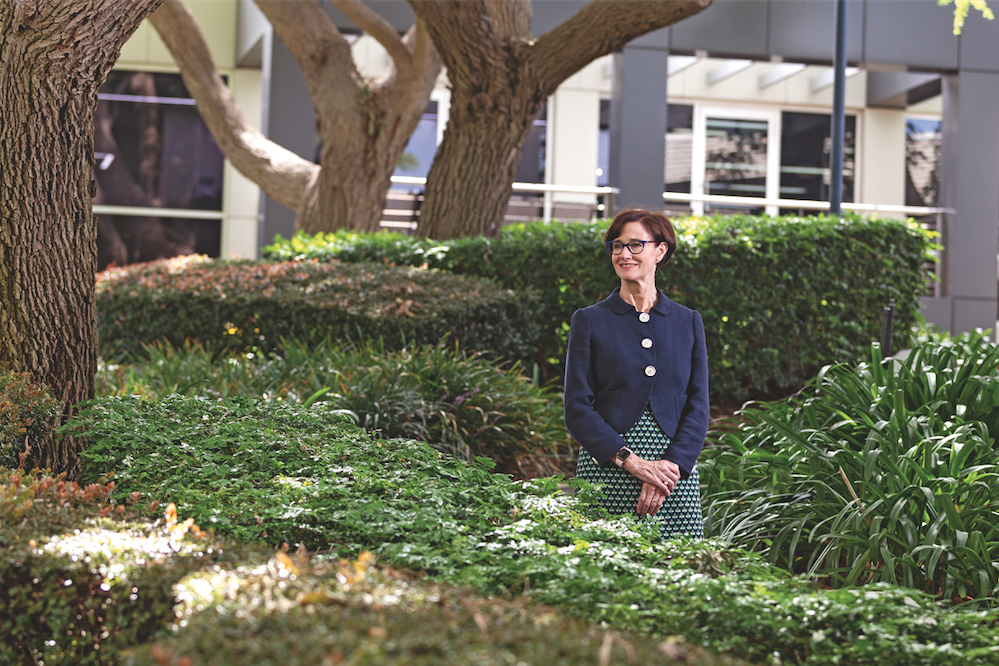Jennifer Lawrence has no doubt seen it all during her 17 years at the Brightwater Care Group. She’s navigated a minefield of funding uncertainty, regulation changes and the scrutiny of a Royal Commission, not to mention the constant and critical glare her industry attracts from the public and media.

The past few years in particular – in fact, ever since she took over the role as CEO of the aged care and disability services provider – have been very challenging. Surely there is nothing left to surprise her. Apparently there is.
“Our staff,” she says. “Their empathy and commitment to the people we care for always amazes me.” Those people number more than 3,000, all of whom are cared for by a Brightwater service, located predominantly in Perth, and offering retirement, aged and disability care.
Having worked as the General Manager of Disability, Research and Risk since joining Brightwater in 2003, Jennifer admits it was a “real gamble” for the Board to appoint a CEO from within rather than considering external professionals.
But she concedes her long history with the company gave her a unique insight into what was required, particularly in a very rapid and fluid environment.
Once in the top job, she wasted no time in surrounding herself with the right executive team, including a general manager of customers to assist with moving the organisation away from being a health-based service and more towards a customerdriven service.
However, Jennifer was recognised for more than her strong leadership skills. She also boasts an impressive pedigree in medical science, having held executive roles in private pathology and clinical research, with many of her findings published overseas.
Her expertise has already led to the launch in 2011 of the internationally renowned Brightwater Research Centre.

“I was always attracted to working out how things work in the body,” she explains. “And I still really enjoy the research into health and wellbeing and discovering new developments. That’s why this industry appeals – there’s so much opportunity for us to really make a difference.”
Indeed, Jennifer has already made a huge difference to Brightwater, from both a business and cultural perspective. Based at headquarters in Perth’s Osborne Park, she’s responsible for 2,400 carers, medical professionals, researchers and administrative staff, most of whom work across Brightwater’s 11 aged care homes, 10 disability homes and one retirement village.
Brightwater offers a broad cross-section of services, including residential aged care, aged care in the home, disability support, retirement living and industrial services in catering and commercial linen.
Care varies to cater to each individual’s needs, the choice of short- and long-term residential accommodation or assistance provided in the home for the aged, while rehabilitation services offer specialised support for people aged from 18 living with the complex disabilities resulting from brain injuries.
There is ongoing investment in residential buildings, including Brightwater’s largest capital development in its 119-year history. The development to be built next to Brightwater’s The Village, Inglewood facility, proposes a community hub to include office, training and research facilities, incidental retail and recreation amenities and intergenerational care and accommodation.
“This parcel of land will house a co-head office and 120-bed residential aged care facility,” Jennifer explains. “It’s something I’m really passionate about because it’s important for a corporate office to be located at one of our sites so people working at head office understand exactly what we do out there.”
One of the biggest challenges facing Jennifer and her team was to transform Brightwater’s core businesses into standalone sustainable enterprises – a milestone achieved last year with turnover increasing to A$182 million from A$140 million in 2017. “Yes, there was a fair bit of work to be done,” she admits.
“Some of the businesses were operating in the red and we were cross-subsidising. But now each of our businesses is sustainable, standing on its own two feet, which is very good in this industry.
“We’re now able to fund the services we are very passionate about, such as our research arm, which we’re committed to because it enables us to make decisions about care based on evidence. As we’re not-for-profit, we’re really proud of that.”
Ironically, Jennifer and her team experienced more proud moments during the aged care industry’s greatest upheaval. The Royal Commission into Aged Care Quality and Safety was launched in October 2018 to scrutinise the quality and safety of residential and in-home aged care, including younger people with disabilities forced to live in aged care homes.
COVID-19 Update
Brightwater took a direct and proactive approach when COVID-19 began to emerge in Australia in February. Drawing on the pandemic plan it had implemented during the 2002 SARS epidemic, Brightwater added stricter strategies to combat the new coronavirus and its rapid spread. Visitors, with the exception of family in extenuating circumstances, were banned, along with volunteer programs and wellbeing services. Key staff were immediately separated into virtual teams, and iPads with Skype accounts were set up in each house so that regular contact with families could be maintained and the mental health of clients could be monitored carefully by Brightwater’s own health professionals. To ease the loneliness of clients, Brightwater Buddies was established to give residents a connection to the outside world. Brightwater called upon the community to volunteer to communicate either by phone to have a chat or to read a book or letters, or to participate in a singalong. Children were also asked to contribute with drawings and messages. The initiative was met with an overwhelming response after its launch on 27 March with the program attracting more than 500 registrations from volunteers.
Clearly confident Brightwater would exceed all expectations and, always seeking the best in care, Jennifer welcomed the Commission and its scathing interim report, released in October last year, which revealed the industry was failing to meet the needs of its vulnerable and older citizens and was not uniformly delivering safe and quality care.
Commenting on the findings in her 2019 annual report, Jennifer said she was proud of Brightwater’s submission to the Commission, and felt privileged and humbled to accept its invitation to participate in a roundtable workshop and present evidence on best practice care options for those living with dementia.
It was during the same year that Brightwater was selected by the Federal Government to trial its pilot Specialist Dementia Care Program, designed to support people exhibiting very severe behavioural and psychological symptoms of dementia.
Meanwhile, using her own scientific background and commitment to investing in cutting-edge technology, Jennifer is driving Brightwater’s Research Centre to develop solutions to improve the quality of lives affected by dementia, brain injuries and Huntington’s disease.
The centre has partnered with various public and private universities and organisations to complete research projects that are exploring better outcomes for Brightwater clients and residents.

“We also have a 10-year alliance with Professor Lynne Turner-Stokes from King’s College in London. She’s an expert in brain injury rehab and comes out once a year to share information so we can help improve each other’s services,” she adds.
While Jennifer is undoubtedly a formidable force promoting science to trigger change and innovation in the aged and disability sectors, her instinctive responsibility to care for people has also achieved a difference in altered perceptions and expectations.
As a newly minted CEO she visited 1,800 employees at each Brightwater site to deliver face-to-face presentations and provoke conversations about the organisation’s new mission to pursue the dignity of independence.
It was a big call for a service provider already boasting decades of service since opening its doors in 1901, when it offered just 30 beds to hospice patients. “My 20-minute presentation explained who we are, why we are here and what we do for our clients,” she explains.
“I was absolutely astounded by the reactions, how genuine, authentic and real our people are. I was completely blown away by the tears and many hugs of support. It proved we’d hit the right note.”
Catering and Linen
Brightwater Linen is a cutting-edge commercial laundry employing more than 140 staff, supplying management services and linen to various companies and clients spanning Perth and Western Australia, including hotels, hospitals, restaurants and mining sites. The 3,500 square-metre facility, based at Malaga Business Park, is the second largest commercial linen business in Western Australia, boasting equipment for processing 800,000 kilograms of linen and 1.4 million other items, including towels and sheets, every month. Meanwhile, Brightwater Catering, also based at Malaga and sporting top-of-the-range equipment to process raw goods through to delivery, not only caters to the nutritional needs of its clients but also to other care establishments, including a number of Meals on Wheels organisations.
It’s abundantly clear that Jennifer is hugely empathetic towards Brightwater clients, but she’s also very protective of them, refusing to pigeonhole them, particularly when it comes to the aged. Rather than refer to them as ‘elderly’, she sees them in a phase of ‘elderhood’, a natural progression from childhood to adulthood.
“We’re living longer, we’re healthier for longer and living our lives with much greater quality,” she reflects. “The baby boomers are contributing to a rapidly ageing population in Australia, generating an increased demand to provide services suitable to their changing needs. Elderhood epitomises the health and wellbeing of someone entering another phase of life, not the end of their life, just the next stage after adulthood.
“Of course, there are the people who become very old and frail towards the end of their lives, and naturally we cater to their specific needs. But I want to move the dial from the perception that aged care provides services for the end of the line to an idea where it’s just another chapter and there’s still plenty of time to enjoy your life.”
To ensure Brightwater not only continues to attract the right staff but also retain them, Jennifer prefers a value-based recruitment approach that penetrates further than the initial need for qualifications and skills.
“If you get the right people with the right values, you can always teach them the skills,” she explains. “So it’s not about ticking boxes, it’s actually about getting people who work well with other people, who are good listeners, good communicators, who have great empathy and genuinely care about for people. People who understand that, at Brightwater, no-one is beyond care.”
While fine-tuning the staff selection process, Jennifer also managed to attract younger workers. When she started with the company, the average staff member was female and 55. However, in recent years, she’s been experiencing a huge spike of candidates aged between 30 and 45, and more interest from graduates.
“Some of the work we’ve done with student programs has helped with that,” she explains. “We are trying to encourage students to do their practicums with us, an almost try-before-you-buy program. It really encourages them, and helps them realise aged care can be a wonderful career path.”

Jennifer has many strings to her bow. She is a Graduate of the Australian Institute of Company Directors, a Member of the Australian College of Health Service Management and a non-executive Director of the Leeuwin Foundation, which offers Australia’s largest sail-training tall ship, STS Leeuwin 11, to high school students to help develop their core skills.
Her outside involvement with other organisations provides Jennifer with the perfect platform to hear different ideas, and inspires her to keep thinking outside the square and maintain her ideal of Brightwater driving a more customer-focused culture.
She’s quick to explain, however, that being more customer-centric doesn’t mean doing everything for their clients. In fact, it’s quite the opposite.
“We listen to our individuals to work out what they want to do with the rest of their life; all of this is in pursuit of our mission to provide the dignity of independence. After all, we want them to be as independent as possible.
“But when an aged person comes into one of our facilities, it’s not about us doing everything for them. It’s actually about encouraging them to get up and have breakfast with the people they live with, encouraging them to go out for the day or take up one of the activities we have on offer.”
Brightwater’s research includes introducing technology to show how their clients can continue to be independent. For example, at some sites there are sensors that enable clients to be independent in their rooms, or homes, which offers peace of mind to families who are reluctant to be invasive that their loved ones are well and active.
“Keeping people well and independent is what we’re about, and technology is helping us with that,” Jennifer says. “We are a growing, essential industry and at Brightwater we have a strong, vibrant culture that hinges on our belief that everyone should be given the opportunity to be their best.
“That’s why I enjoy my job; we are always doing interesting things which offer change and development. Nothing is stagnant.”


